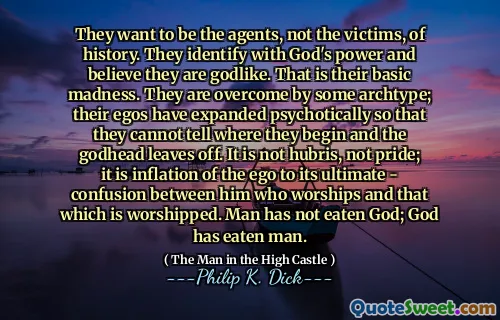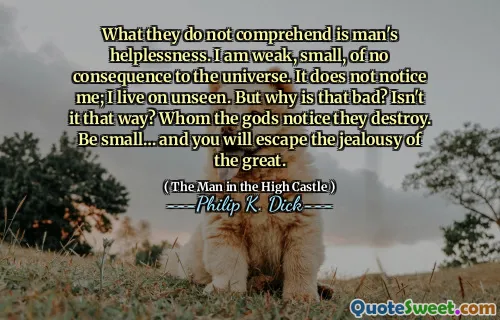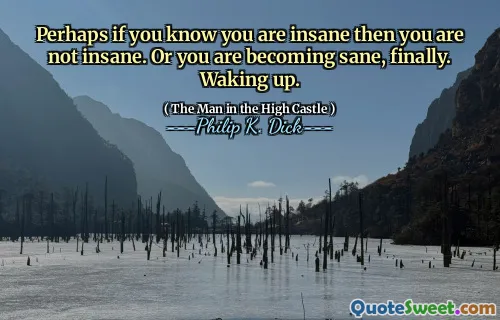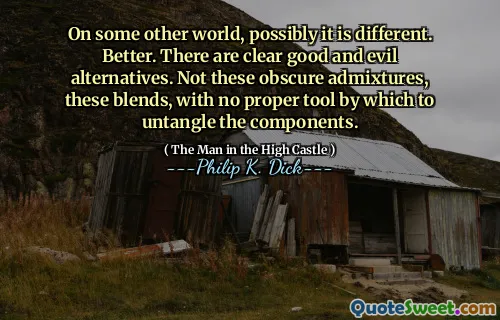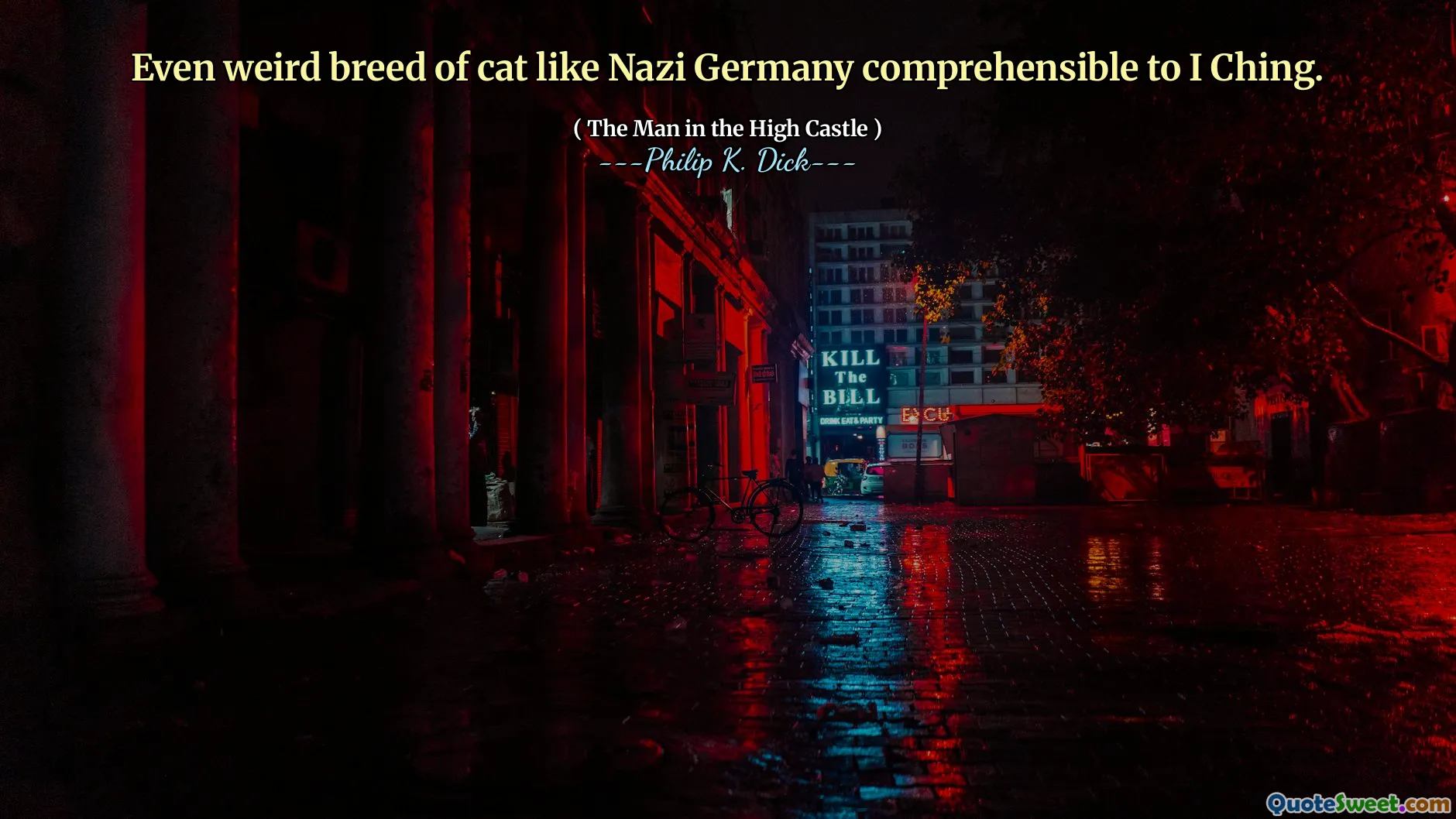
Even weird breed of cat like Nazi Germany comprehensible to I Ching.
In Philip K. Dick's "The Man in the High Castle," the narrative explores an alternate history where the Axis powers won World War II. This dystopian setting delves into the complexities of a society under totalitarian control, revealing the surreal elements of life in a world shaped by oppression and conflict. The characters grapple with identity, morality, and the nature of reality, reflecting the absurdities and contradictions inherent in such a regime. The quote about understanding even the peculiar aspects of Nazi Germany through the I Ching highlights the novel's exploration of paradoxes and philosophical truths. It suggests that even the most oppressive systems can be analyzed and understood through the lens of Eastern philosophies. This perspective encourages readers to consider how different cultural frameworks can provide insights into the nature of power and human behavior.
In Philip K. Dick's "The Man in the High Castle," the narrative explores an alternate history where the Axis powers won World War II. This dystopian setting delves into the complexities of a society under totalitarian control, revealing the surreal elements of life in a world shaped by oppression and conflict. The characters grapple with identity, morality, and the nature of reality, reflecting the absurdities and contradictions inherent in such a regime.
The quote about understanding even the peculiar aspects of Nazi Germany through the I Ching highlights the novel's exploration of paradoxes and philosophical truths. It suggests that even the most oppressive systems can be analyzed and understood through the lens of Eastern philosophies. This perspective encourages readers to consider how different cultural frameworks can provide insights into the nature of power and human behavior.


